
After having lived and worked in the Middle East with my family for 15 years, I returned home permanently to Midrand in December 2020. During the time away, I didn’t man age much local birding because most family holidays were spent exploring other countries, and as a consequence my South African bird list hardly grew.
Being back home has given me the opportunity to rediscover many old birding haunts as well as a number of new sites, and get re-acquainted with old birding friends and make new ones. In many instances I am seeing birds I haven’t seen for more than 15 years, so it’s a little like starting afresh, which is incredibly rewarding.
There are two reserves close to my home in Midrand: Beaulieu Bird Sanctuary and Glen Austin Bird Sanctuary. The latter is steadily becoming my favourite birding spot and I try to visit it at least once a month. I have seen many of the more common and resident species, but there are still many that I need to connect with, like Greater and Lesser flamingos, Black-necked Grebe, South African Shelduck, Lesser Blackbacked Gull and Lanner Falcon.
The Midrand area is typical Highveld, characterised by gently sloping plains and deep valleys carved out by the Jukskei River, Kaalspruit, Olifantspruit, Modderfontein Spruit and smaller watercourses. The landscape is broken up in places by large granite boulders, rocky outcrops and hillocks. Except where humans have settled, the plains are generally treeless. Vegetation occurs in clumps on many outcrops and hillocks, but in the river valleys it becomes dense.
Esta historia es de la edición March/April 2024 de African Birdlife.
Comience su prueba gratuita de Magzter GOLD de 7 días para acceder a miles de historias premium seleccionadas y a más de 9,000 revistas y periódicos.
Ya eres suscriptor ? Conectar
Esta historia es de la edición March/April 2024 de African Birdlife.
Comience su prueba gratuita de Magzter GOLD de 7 días para acceder a miles de historias premium seleccionadas y a más de 9,000 revistas y periódicos.
Ya eres suscriptor? Conectar

EXPLORING NEW HORIZONS
Keith Barnes, co-author of the new Field Guide to Birds of Greater Southern Africa, chats about the long-neglected birding regions just north of the Kunene and Zambezi, getting back to watching birds and the vulture that changed his life.
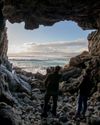
footloose IN FYNBOS
The Walker Bay Diversity Trail is a leisurely hike with a multitude of flowers, feathers and flavours along the way.
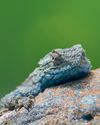
Living forwards
How photographing birds helps me face adversity
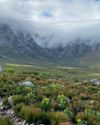
CAPE crusade
The Cape Bird Club/City of Cape Town Birding Big Year Challenge
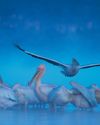
water & WINGS
WATER IS LIFE. As wildlife photographer Greg du Toit knows better than most.
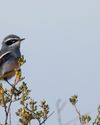
winter wanderer
as summer becomes a memory in the south, the skies are a little quieter as the migrants have returned to the warming north. But one bird endemic to the southern African region takes its own little winter journey.
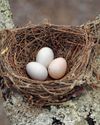
when perfect isn't enough
Egg signatures and forgeries in the cuckoo-drongo arms race

Southern SIGHTINGS
The late summer period naturally started quietening down after the midsummer excitement, but there were still some classy rarities on offer for birders all over the subregion. As always, none of the records included here have been adjudicated by any of the subregion's Rarities Committees.

flood impact on wetland birds
One of the features of a warming planet is increasingly erratic rainfall; years of drought followed by devastating floods. Fortunately, many waterbirds are pre-adapted to cope with such extremes, especially in southern Africa where they have evolved to exploit episodic rainfall events in semi-arid and arid regions. But how do waterbirds respond to floods in areas where rainfall - and access to water - is more predictable? Peter Ryan explores the consequences of recent floods on the birds of the Western Cape's Olifants River valley.
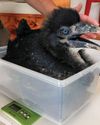
a star is born
It’s every producer’s dream to plan a wildlife television series and pick the right characters before filming.